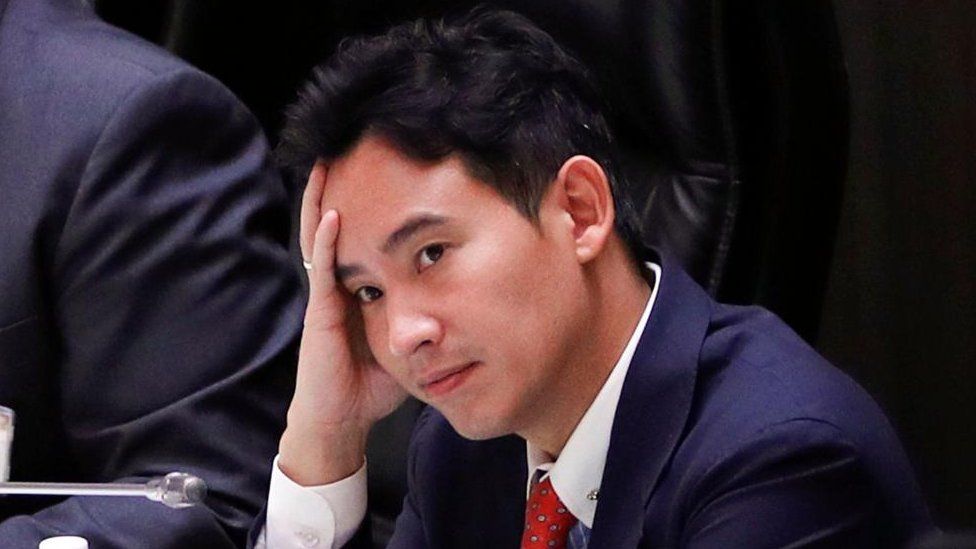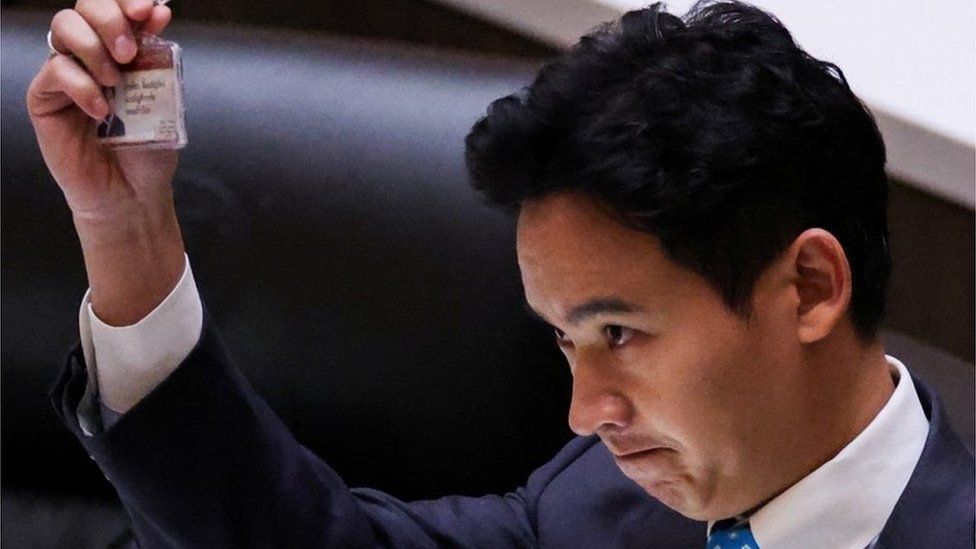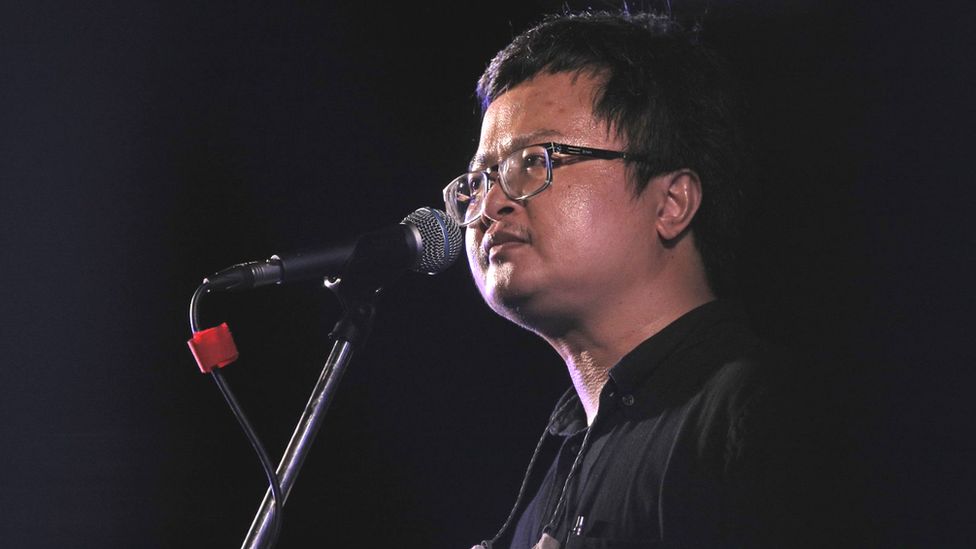
One of Thailand’s most prominent political activists, Arnon Nampa, has been sentenced to four years in prison under the country’s much-criticised royal defamation, or lese-majeste law.
He was convicted by a court in Bangkok over comments he made during a protest in October 2020.
Thailand’s lese-majeste law forbids anyone from insulting the monarchy on pain of harsh jail sentences.
It has been increasingly enforced since the military took power in a 2014 coup.
Mr Arnon, a human rights lawyer, was the first activist to call publicly for a national conversation on the role of the monarchy in today’s Thailand.
The verdict follows months of public discussion of the law after the general election in May, in which the progressive Move Forward party defied expectations by winning the largest number of votes and seats in parliament on a platform of sweeping reform, including a demand that the lese-majeste law be amended.
That demand was cited by the military-appointed senate as justification for blocking Move Forward from forming a government, despite the clear majority it had with its then-coalition partners in parliament.
Simply proposing changes to the law, argued many senators, amounted to a threat to the monarchy’s status in Thailand and could not be allowed.
As a result, an alternative coalition was cobbled together, which includes many of the conservative parties from the outgoing administration. Any debate about the monarchy will now certainly be strongly discouraged.
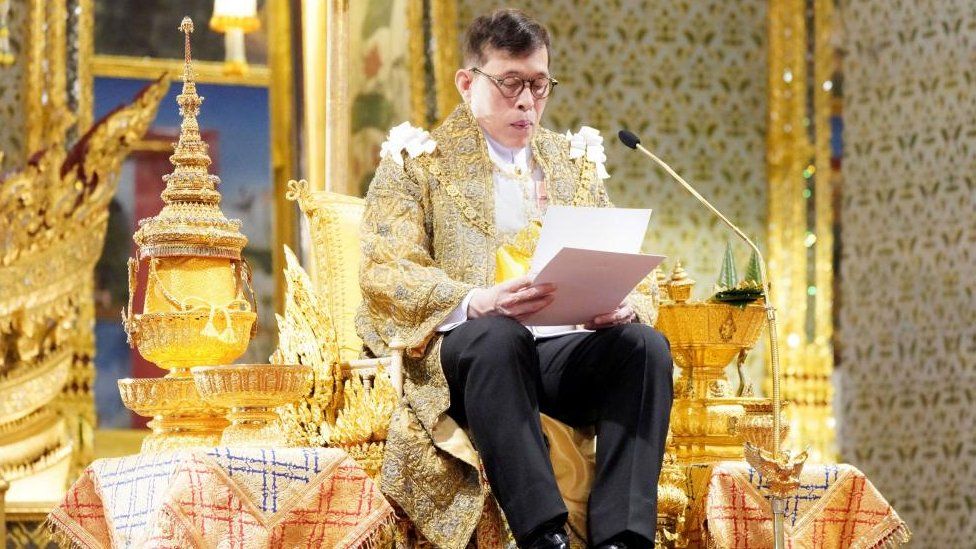
Arnon Nampa shot to prominence on 3 August 2020, when, during student-led protests against the then-military-backed government, he broke a strict taboo by demanding that the monarchy be part of wider calls for reform.
It was a very risky thing to do. People have been jailed for 30 or 40 years in Thailand just for social media posts deemed to defame the royal family.
Defending yourself against a lese-majeste charge is very difficult too – trials are often held behind closed doors, and defendants are put under great pressure to plead guilty, in order to get the typically severe sentences reduced.
Mr Arnon’s call struck a chord with many younger Thais. Thailand’s king is officially above politics, and in public plays a largely ceremonial role, like other constitutional monarchs.
But the Thai monarchy is one of the wealthiest in the world, and in practice can exercise great power. King Maha Vajiralongkorn has personal command over the most important army units. Much of the way the palace is funded, or uses its influence, remains opaque.
A week after Mr Arnon’s taboo-breaking proposition, students at Thammasat, one of the top universities, issued a manifesto calling for wholesale changes to the monarchy. The next five months saw a series of increasingly bold demonstrations in the capital Bangkok and other cities where the monarchy was centre stage. Real change is not possible, they argued, unless the monarchy is also discussed.
Until the 2020 protests, use of the lese-majeste law had been suspended for two years, at the request of the king. Royalists quietly conceded that such prosecutions damaged the image of the monarchy.
But the open criticism, even scorn, of the royal family by some of the demonstrators prompted a rethink.
By December 2020, the lese-majeste law was being used once more against the protest leaders, in particular Arnon Nampa, who has been charged 14 times. He also faces multiple charges under other national security laws like Sedition and the Computer Crimes Act, and has already spent several months in prison.
The 2020 protests petered out by the following year. But many of the ideas of the youth movement behind them persisted, and were adopted by the Move Forward party for its 2023 election campaign. It carefully avoided any direct call for royal reform, but did talk about the need for a national conversation about the institution, as Mr Arnon had done, and wanted the lese-majeste law to be amended.
Some of Move Forward’s young candidates were themselves facing lese-majeste charges over their involvement in the 2020 protests. Some are now first-time MPs in the new parliament, where they are part of the official opposition.
The senate’s success in keeping Move Forward out of power means the public discussion it wanted about the monarchy cannot happen, for now. It has also quashed any real possibility that the lese-majeste law will be amended, or its use curtailed. Since 2020, 257 people have been charged with lese-majeste, the highest number ever seen in Thailand.
Protest leaders from the 2020 movement like Arnon Nampan will be tied up defending themselves against multiple criminal charges for many more years. He has two very young children, who may not be able to see much of their father as they grow up.
Related Topics
-
-
6 October 2017
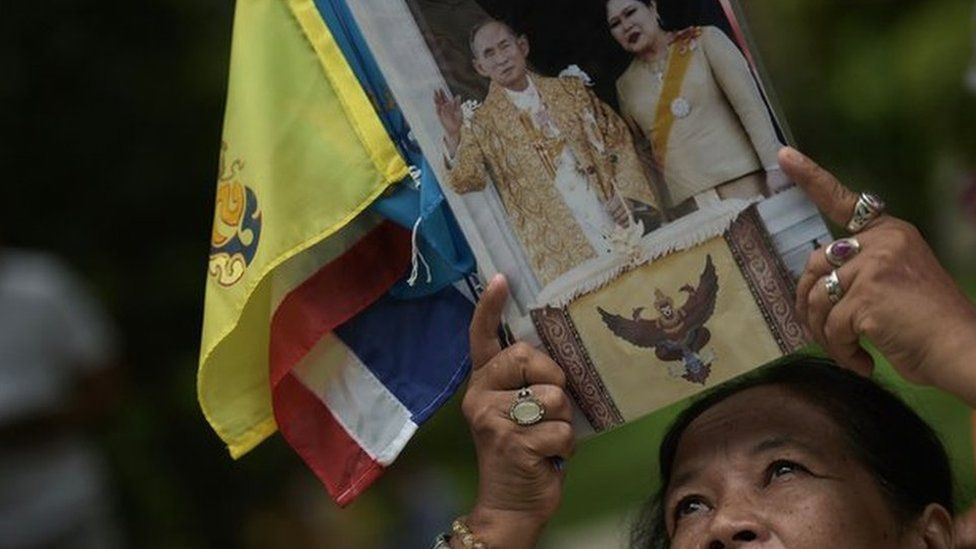
-
-
-
3 May 2019
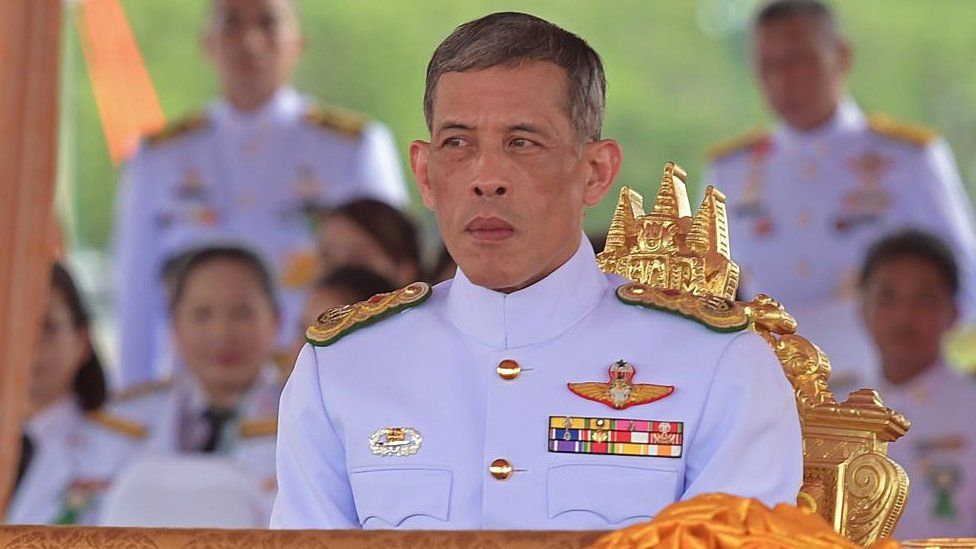
-


